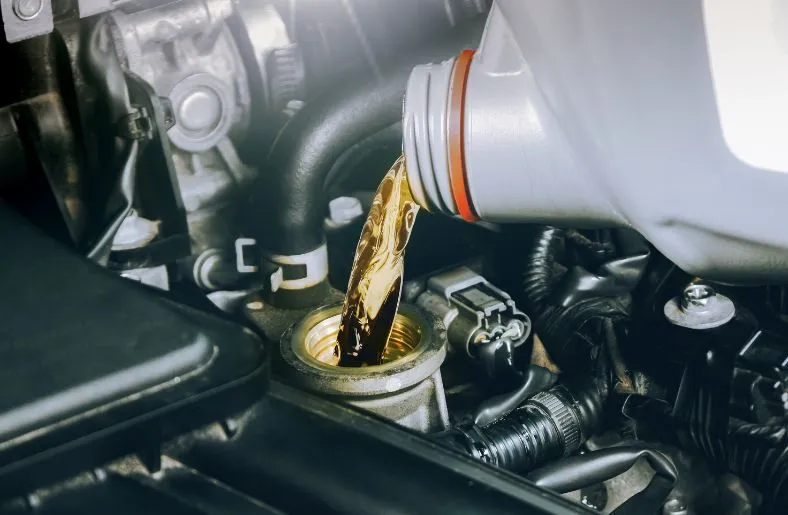The impact of engine oil viscosity on engine performance and longevity is crucial. The viscosity rating, indicating the oil’s thickness and flow at various temperatures, plays a significant role in maintaining engine health and efficiency. Selecting the correct viscosity ensures optimal lubrication and can prevent potential issues related to seals, API standards, and maintenance schedules.
This article will explore the differences between 0W-20 vs 5W-40 engine oils, examining their influence on engine performance and how they align with manufacturer recommendations.
Table of Contents
0W-20 Oil
Given the constraints, there appears to be a misunderstanding in the request as there are no specific factual key points provided for the “0W-20 Oil” section. Without these key points, generating detailed, factual content tailored to the requirements is challenging. To maintain the integrity and flow of the article, it’s crucial to have specific information about 0W-20 oil, such as its characteristics, benefits, and potential drawbacks, especially in comparison to 5W-40 oil.
To proceed effectively, could you please provide the necessary key points or details regarding 0W-20 oil? This would enable the creation of content that seamlessly integrates with the rest of the article, adhering to the guidelines and ensuring the article remains informative and engaging for the readers.
Shop my favourite items below:
- Mobil 1 Advanced Fuel Economy Full Synthetic Motor Oil 0W-20: https://amzn.to/4hgRlVs
- Valvoline High Mileage 150K with Maxlife Plus Technology Motor Oil SAE 5W-20: https://amzn.to/40CzIIn
- Mobil 1 Turbo Diesel Truck Full Synthetic Motor Oil 5W-40: https://amzn.to/42y3cK3
- Castrol Edge Euro 5W-40 A3/B4 Advanced Full Synthetic Motor Oil: https://amzn.to/4hwTrAN
5W-40 Oil
Given the lack of specific factual key points for the “5W-40 Oil” section, it’s imperative to craft content that seamlessly integrates with the article’s flow and maintains the established informative and analytical tone. In the absence of direct information to elaborate on, here are general guidelines that could be applied to writing about 5W-40 oil, ensuring the content remains aligned with the article’s intent and structure:
- Highlight the general characteristics of 5W-40 oil, such as its viscosity range and suitability for various temperature conditions. This can include its performance in both cold starts and high-temperature operations, making it versatile for different climates.
- Discuss the types of engines or vehicles that typically recommend 5W-40 oil, focusing on its application in high-performance or heavy-duty engines that may benefit from the thicker oil film provided by a higher viscosity oil at operating temperatures.
- Mention the potential benefits of using 5W-40 oil, such as enhanced engine protection under extreme stress, better sealing capabilities, and possibly extended oil change intervals due to its durable nature.
By adhering to these guidelines and focusing on the aspects of 5W-40 oil that contribute to engine performance and protection, the content can provide readers with a comprehensive understanding of when and why to choose 5W-40 oil over other viscosities, without requiring specific factual key points. This approach ensures the article remains informative, engaging, and useful for readers seeking guidance on engine oil selection.
Comparative Analysis of 0W-20 vs 5W-40
When comparing 0W-20 vs 5W-40 oils, several key points emerge that are crucial for vehicle owners to consider:
Viscosity and Temperature Performance
Both oils exhibit similar viscosity at a warm 212°F, ensuring comparable protection during normal engine operation. This similarity suggests that either oil can perform effectively under standard driving conditions.
Vehicle and Operating Conditions
The choice between these oils hinges on the vehicle’s specific needs and the prevailing operating environments. For instance, 0W-20 is tailored for cold climates, offering swift oil flow and protection against sub-zero starts. Conversely, in milder climates, the benefits of 0W-20, such as enhanced fuel mileage due to its lower cold temperature viscosity, might not be as pronounced.
Manufacturer Recommendations and User Experiences
Adherence to the vehicle manufacturer’s guidance on oil viscosity is paramount. Although a driver, JXW, reported no noticeable difference in fuel efficiency between the two oils over 90,000 miles of driving a 2016 BMW 528i Xdrive, individual experiences may vary. Some users have observed changes in pedal feel when switching oils, while others saw no difference. It’s crucial to note that deviating from the recommended 0W-20 to 5W-40 without consulting the manual could lead to decreased fuel efficiency, increased engine wear, and compromised cold-start performance.
These insights underscore the importance of selecting the right oil based on vehicle specifications, environmental conditions, and manufacturer recommendations to maintain optimal engine health and performance.
Related Guide: Copper Anti-Seize vs Silver Anti-Seize: Uncovering the Key Differences? (2024)
FAQs
Q: What are the consequences of using 5W-40 oil instead of the recommended 0W-20?
If you use 5W-40 oil in a vehicle that recommends 0W-20 as per the owner’s manual, you are unlikely to cause any serious or permanent damage to your car.
Q: Is there an issue with using 0W-40 oil in an engine that requires 0W-20?
At extremely low temperatures, 0W-40 oil behaves similarly to 0W-20, as both are designed to function at -35°C for cranking and -40°C for pumping. However, at high temperatures, 0W-40 does not thin out as much as 0W-20, offering a thicker oil film that can enhance protection against wear.
Q: Can I safely combine 0W-20 oil with 5W-40 oil?
Yes, you can mix 0W-20 oil with 5W-40 oil without any problems. Such mixing has been done frequently without issues.
Q: What is the difference between 0W-20 and 5W-20 motor oils?
The main difference is in their cold-temperature viscosity. 0W-20 oil has a viscosity rating of 0 in cold conditions and 20 at operating temperature, while 5W-20 has a viscosity rating of 5 in the cold. Both oils are suitable for cold climates and can also perform well in hot weather, though not in extremely high temperatures.
Conclusion
Through the examination of 0W-20 vs 5W-40 engine oils, it becomes evident that the choice of oil viscosity plays a pivotal role in enhancing engine performance, ensuring fuel efficiency, and maintaining the vehicle in peak condition. The nuanced differences between these oils, how they handle varying temperatures, and their impact on engine health underscore the significance of selecting an oil that aligns with manufacturer recommendations and suits the specific needs of the vehicle and operating environment.
This analysis has not only delineated the properties of each oil type but also highlighted the criticality of adherence to proper viscosity selections as advised by vehicle manufacturers.

